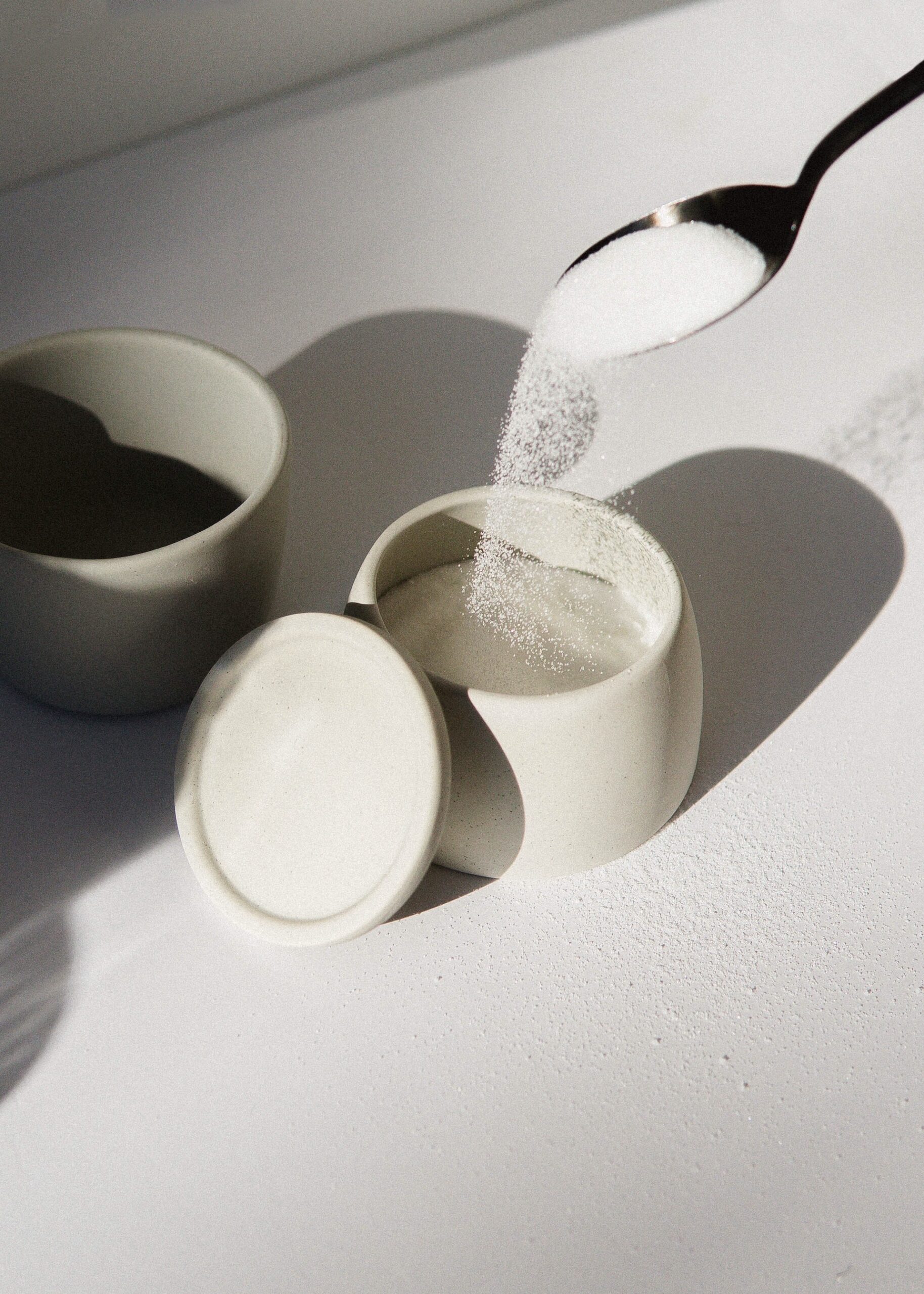Foods Not to Eat for Hair Health
Sanctuary Salon Blog – August 2020
Studies show the average person loses up to 100 strands of hair every day. Although this is normal, the quantity and pattern in which we lose it can be dependent on the foods we eat (or do not eat). The average strand of hair lasts 5-7 years and 90% of our hair is in a constant state of growth while the other 10% is prone to falling out more easily. Here are a few foods and guidelines of what not to do when it comes to food and hair health.
Under Eating in General
An acute change in calorie intake whether it be actual starvation or an attempt at a “diet”, both can lead to hair loss. This is due to undereating and a lack of fuel. More specifically a lack of protein and vitamins and minerals which we learned in the last post are essential to growing healthy hair. When we significantly cut calories to go “on a diet”, our body adapts to support first and foremost our vital organs. Hair is not a vital organ and therefore is put on the back burner for nutrients. So next time you think about trying the next fad diet and cutting calories too sharply, think about the effect that has on your body and your hair. If you aren’t sure how to properly decrease calories for safe weight loss consult a Registered Dietitian.
Keto Diets in Particular
Although the Ketogenic Diet is high in protein, it’s lacking many major vitamins and minerals due to the absence of carbohydrates. Biotin in particular is a water soluble vitamin that can result in hair loss when people are deficient. Ketogenic diets have been shown in studies to exaggerate biotin deficiency, therefore this population may be at higher risk of hair loss. It’s also important to note that the Ketogenic diet is not successful in promoting long-term weight loss, in fact it’s been found to promote long-term weight gain. So if you are going “keto” to lose weight, know that it’s not meant for that and it may result in thinner, more brittle locks of hair.
Alcohol
Alcohol consumption promotes hair loss for a few different reasons.
- It reduces the absorption of minerals – such as zinc which is essential for hair growth and retention.
- It also decreases absorption of B vitamins and Vitamin C.
- It also promotes dehydration – which in turn contributes to dry, brittle hair strands.
- If you’re drinking alcohol, you’re less likely to be consuming a balanced diet. It’s much more common to crave a slice of pizza or a burger versus a garden salad with a buzz or a hangover.
- Poor sleep quality = increased stress. Hair loss is a common side effect of stress. Hence the term “beauty sleep”.
Added Sugars
Added sugars are the sugars that are purposely added into food during processing. For instance the sugars that are put into baked goods and soda. Although there aren’t studies directly correlating added sugars resulting in hair loss or poor hair health, consuming excess added sugars can contribute to other comorbidities and obesity. Sugary beverages in particular have been linked to obesity in extensive research over the past decade. It’s recommended to keep added sugar as <10% of your total calories per day. In a 2000 calorie diet, this would be <200 calories coming from added sugars or about 50 grams. Thankfully, added sugars are now listed on food labels for consumers to monitor.
Foods that Inhibit Iron Absorption
Phytates: These are compounds in foods that can actually block iron absorption. This is especially true in “non-heme” iron, or iron not found in animal products. You’ve probably seen or read that there is iron in plant based foods such as spinach but the bioavailability (how well you absorb it) isn’t great. Whole grains, wheat bran, beans, and seeds are examples of phytate rich foods. Instead of avoiding these foods, you should opt to soak them prior to consumption which decreases the phytate content.
Polyphenols: These are antioxidants found in foods such as tea, coffee, and dairy products. Although we often connect antioxidants to improved health, they can decrease iron absorption similarly to phytates. This time we are talking about heme iron (found in animal products i.e. steak). One easy way to avoid this by not consuming iron rich foods directly with polyphenol containing foods such as drinking coffee with your sausage and bacon breakfast sandwich.
Tips to Enhance Iron Absorption:
Consuming Vitamin C can enhance iron absorption. You should aim to include fruits and vegetables daily that are high in vitamin C such as broccoli, peppers, strawberries, and citrus fruit. Opt for foods versus supplements. Your body prefers food form, plus you are getting fiber and other nutrients from a piece of produce versus a pill.
Cooking with cast iron pans. This actually transfers some of the iron in the pan to your system – which can be especially helpful for vegans and vegetarians who never eat meat.
Although your diet can significantly impact your hair, there are many other facts that may lead to hair loss. Certain medications can impact hair such as blood thinners, antidepressants, and taking too much of unnecessary supplements (i.e. zinc).
In summary, eat a balanced diet full of fruits, vegetables, whole grains, and lean meats. Try to limit alcohol and added sugars. Lastly, skip the fad diets and severe under fueling. If you eat a generally healthy diet and follow the above but still have issues with hair loss/balding, talk to your physician.
Sources:
https://www.google.com/amp/s/whatsgood.vitaminshoppe.com/nutritional-deficiencies-hair-loss/amp/
https://www.the-alcoholism-guide.org/alcoholism-and-hair-loss.html
https://pubmed.ncbi.nlm.nih.gov/24012088/
https://www.sciencedirect.com/topics/medicine-and-dentistry/hair-loss
